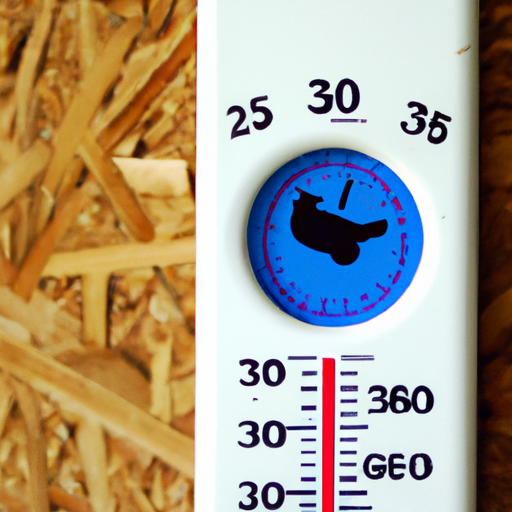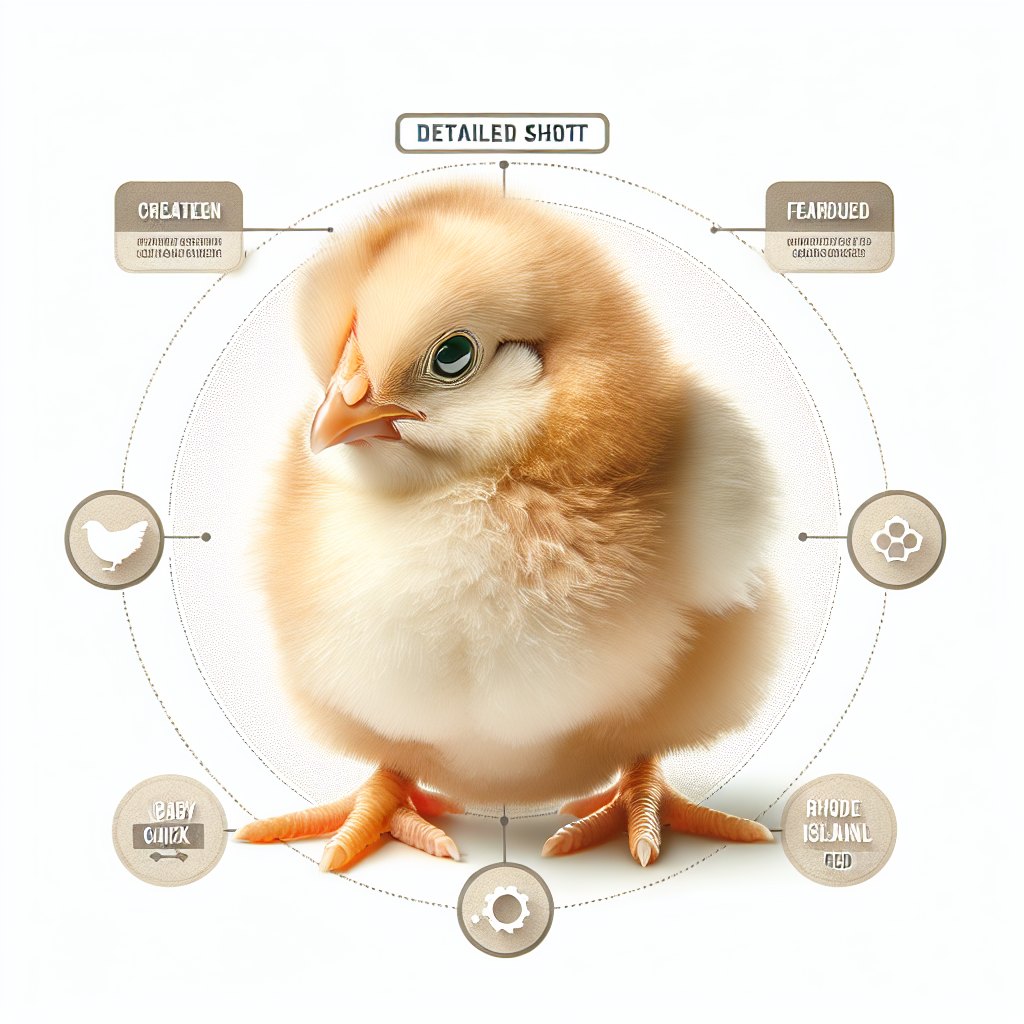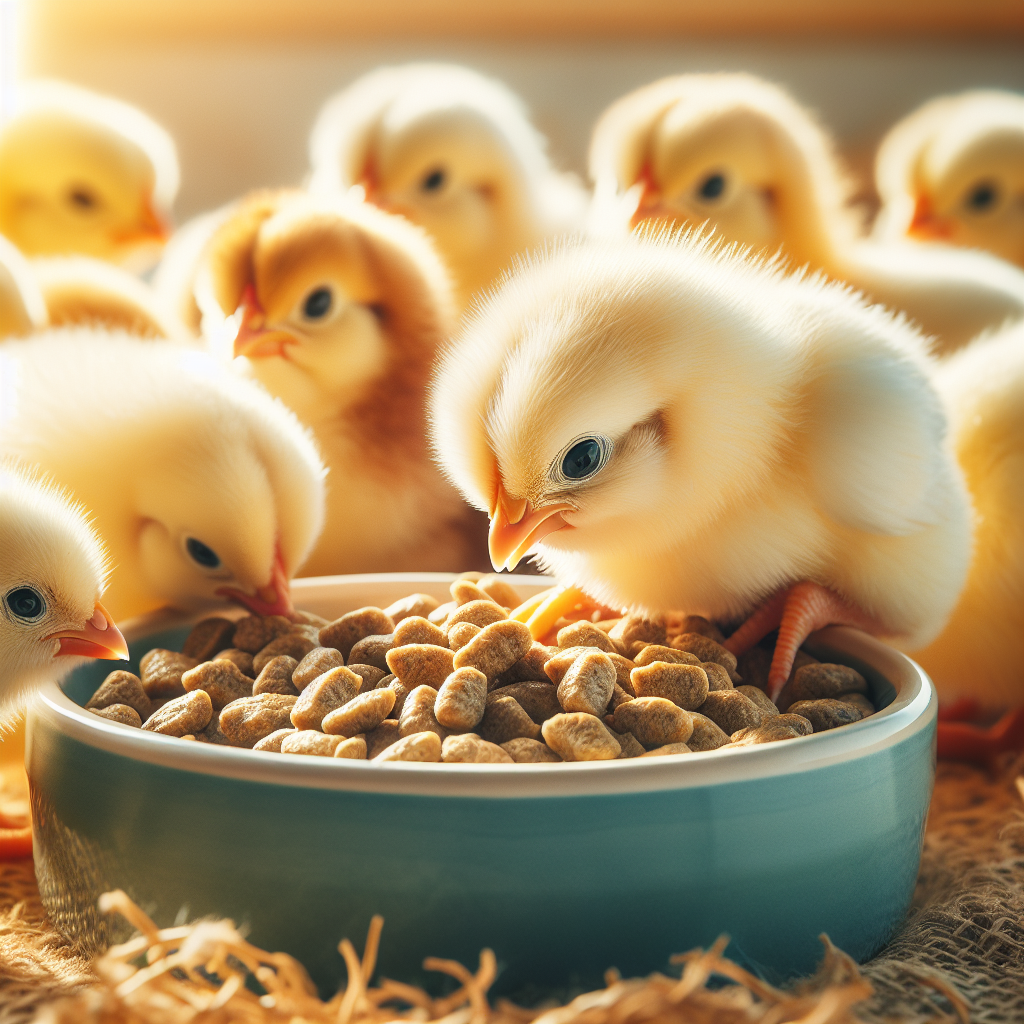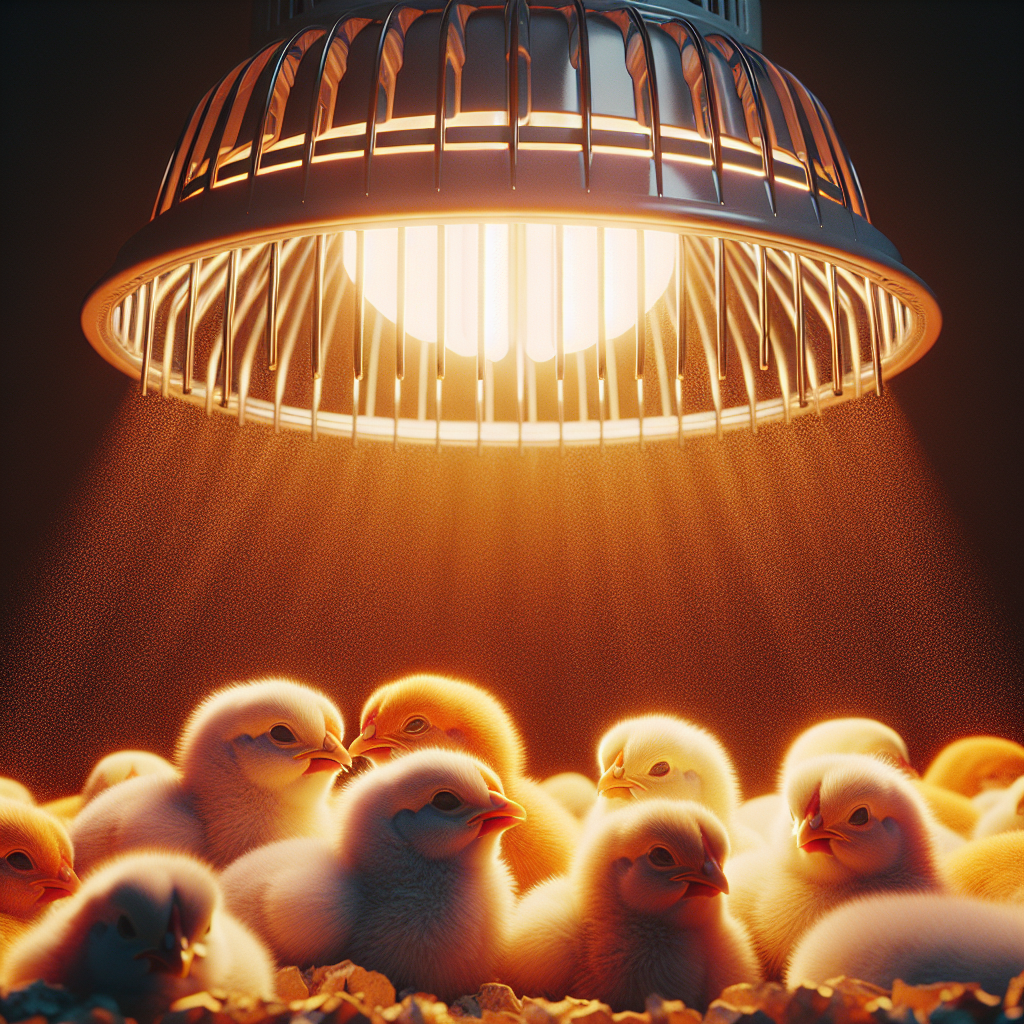During the first few weeks of raising baby chickens, it is crucial to keep a watchful eye on their well-being. These tiny creatures require constant attention and care to ensure they are growing and developing properly. From monitoring their feeding habits to providing a safe and clean living environment, staying vigilant is essential for their health and happiness. But just how often should you be checking on them? In this article, we will explore the ideal frequency of monitoring baby chickens during their crucial early weeks, ensuring that you have all the necessary information to raise these adorable little fluff balls with confidence.
General Overview
Importance of Checking on Baby Chickens
When you first bring home those adorable baby chickens, it’s important to understand the significance of regularly checking on them. These little fluffballs require extra care and attention during their first few weeks of life. Checking on them frequently not only ensures their well-being but also helps you identify any potential issues early on. By keeping a close eye on your baby chickens, you can provide them with the best care possible and promote their healthy growth and development.
Common Issues During the First Few Weeks
During the first few weeks of a baby chicken’s life, there are several common issues that can arise. By being aware of these potential problems, you can promptly address them and ensure the well-being of your chicks.
Common issues may include:
-
Temperature fluctuations: Baby chickens are particularly sensitive to temperature changes and require a warm and comfortable environment. Without adequate warmth, they may suffer from chilling or hypothermia. Conversely, excessive heat can lead to heat stress or even death.
-
Feeding and watering: Proper nutrition and hydration are vital for the healthy growth of baby chickens. It’s important to ensure they have access to clean water and a balanced diet. Lack of proper nutrition or dehydration can result in stunted growth or weakened immune systems.
-
Illness and disease: Like any living creatures, baby chickens can fall ill. Signs of illness may include lethargy, loss of appetite, unusual droppings, or abnormal behavior. Identifying and addressing potential illnesses early can prevent the spread of diseases and improve the chances of recovery.
By understanding these common issues, you’ll be better equipped to monitor your baby chickens’ well-being and address any problems that may arise.
First Few Days
Checking Every Few Hours
During the first few days, it’s crucial to check on your baby chickens at least every few hours. This frequent monitoring allows you to ensure their comfort, warmth, and safety. As mentioned earlier, temperature fluctuations can be detrimental to their health, so it’s important to maintain an optimal temperature in their brooder. By checking on them regularly, you can adjust the heating source or positioning of the brooder if needed.
Monitoring Temperature
Temperature regulation is paramount during the first few days of a baby chicken’s life. A consistent temperature of around 95°F (35°C) should be maintained in the brooder. By using a thermometer, you can regularly check the temperature and make any necessary adjustments. Keep in mind that the ideal temperature may vary slightly depending on the breed and the weather conditions. It’s crucial to monitor the temperature closely to prevent overheating or chilling.
Observing Behavior
Observing your baby chickens’ behavior is another important aspect of their care during the first few days. Healthy chicks should be active, curious, and show interest in their surroundings. If you notice any signs of distress, such as lethargy, weak movements, or excessive chirping, it could be an indication of underlying issues. By paying attention to their behavior, you can quickly address any problems and ensure their well-being.
First Week
Increasing Frequency of Checks
As your baby chickens settle into their new environment, it’s recommended to increase the frequency of checks throughout the first week. Aim to check on them every two to three hours, especially during the daytime. This allows you to maintain a constant watch over their well-being, temperature, and overall condition.
Assessing Feeding and Watering
Feeding and watering are vital aspects of raising healthy baby chickens. During the first week, it’s essential to regularly assess their feeding and watering habits. Ensure they have access to clean water at all times, as dehydration can have severe consequences. Additionally, provide them with a balanced and appropriate diet, whether it’s a commercial chick starter or a well-formulated homemade feed. By monitoring their feeding and water intake, you can ensure they are receiving sufficient nutrients for optimal growth.
Checking for Signs of Illness
During the first week, it’s crucial to be vigilant for any signs of illness. Keep a close eye on your baby chickens’ behavior, appetite, and droppings. If you notice any unusual changes or abnormalities, it’s important to take immediate action. Consult a veterinarian or an experienced poultry keeper to investigate further and address any potential health issues. By catching and treating illnesses early, you can prevent further complications and promote a healthy start for your baby chickens.
Second Week
Checking Multiple Times Daily
As your baby chickens progress into the second week, it’s recommended to increase the frequency of checks even further. Aim to check them multiple times a day, at least every four to six hours. By doing so, you can continue to monitor their well-being, temperature, and any changes in behavior.
Monitoring Growth and Development
The second week is an exciting time as you can witness noticeable growth and development in your baby chickens. Pay close attention to their size, feather development, and overall activity levels. Healthy chicks should be steadily growing, with feathers starting to replace their down. Any abnormal growth patterns, such as stunted growth or excessive feather loss, should be observed and addressed promptly.
Noticing Any Abnormalities
During the second week, it’s crucial to remain vigilant and notice any abnormalities in your baby chickens. Look for signs of distress, such as constant scratching, abnormal breathing, or excessive sneezing. Monitor their droppings for consistency and color, as changes may indicate digestive issues or parasitic infestations. By detecting and addressing abnormalities, you can ensure the continued well-being of your baby chickens.
Third Week
Maintaining Regular Checks
During the third week, it’s essential to maintain regular checks on your growing baby chickens. Aim to monitor them at least every four to six hours, ensuring their continued comfort, health, and safety. By this stage, you should be familiar with their normal behavior and appearance, making it easier to detect any changes or potential issues.
Reviewing Feeding Schedule
As your baby chickens grow, their nutritional needs evolve as well. It’s important to review and adjust their feeding schedule according to their age and breed requirements. Gradually introduce new foods such as greens or treats, but ensure a balanced diet remains the priority. Regularly assess their feeding habits and adjust portion sizes accordingly. By providing them with appropriate nutrition, you can support their healthy development and immune system.
Ensuring Proper Living Conditions
During the third week, it’s crucial to ensure that your baby chickens’ living conditions remain optimal. Clean their brooder regularly to prevent the buildup of waste or pathogens. Adequate ventilation is also important to maintain a fresh and clean environment, promoting healthy respiratory function. Additionally, regularly check the temperature and adjust the heating source if necessary. By ensuring proper living conditions, you create a comfortable and healthy space for your growing baby chickens.
Fourth Week
Gradually Decreasing Checks
As your baby chickens approach their fourth week, you can gradually decrease the frequency of your checks. By now, they should be stronger, more independent, and gaining confidence. Aim to check on them at least twice a day, ensuring their ongoing comfort and health. While they may require less hands-on monitoring, it’s still essential to remain attentive to any potential issues or changes.
Encouraging Independence
During the fourth week, it’s important to encourage your baby chickens’ independence and natural behaviors. Provide opportunities for them to explore and engage in activities such as scratching, perching, or dust bathing. Introduce them to the outdoors gradually, allowing supervised access to fresh air, sunlight, and forage opportunities. Foster their natural instincts and promote healthy psychological development.
Continuing to Monitor Health
While your baby chickens are becoming more self-sufficient, it’s still crucial to continue monitoring their health. Regularly observe their behavior, appetite, droppings, and overall appearance. Check for any signs of illness or discomfort. Additionally, ensure their living conditions remain clean and suitable. By remaining vigilant and addressing any health concerns promptly, you can ensure the long-term health and well-being of your growing baby chickens.
Fifth Week and Beyond
Reducing Frequency of Checks
As your baby chickens reach their fifth week and beyond, you can further reduce the frequency of checks. Typically, daily check-ins should be sufficient at this stage. By now, your chickens should be exhibiting increased independence, capable of foraging, and even roosting. However, it’s crucial to remain attentive to their behavior and any potential health issues that may arise.
Transitioning to the Outdoors
During the fifth week, it’s important to gradually transition your baby chickens to outdoor living. Begin by allowing supervised access to a securely fenced area during daylight hours. This gradual introduction to the outdoors helps them become acclimated to new environmental factors, such as sunlight, natural foraging, and social interactions with older chickens. Continuously monitor their behavior and interactions to ensure a smooth transition.
Maintaining Vigilance in Health
Even as your baby chickens mature and integrate into their outdoor environment, it’s essential to maintain vigilance in their health. Regularly observe their behavior, appetite, and overall appearance. Monitor for any signs of illness or distress and promptly address any concerns. Maintain a clean coop, provide appropriate nutrition, and ensure access to clean water. By prioritizing their health, you can raise a thriving flock of chickens.
Conclusion
Finding a Balance
Raising baby chickens is an exciting and rewarding endeavor, but it requires a careful balance of attention and independence. By following the guidelines outlined in this article, you can find the perfect balance between monitoring your baby chickens’ well-being and allowing them to grow and develop naturally.
Establishing Trust
Regularly checking on your baby chickens during their first few weeks helps establish a bond of trust between you and your flock. They will become accustomed to your presence, associating it with comfort, care, and safety. This trust forms the foundation for a strong relationship, making it easier to handle and care for your chickens as they grow.
Growing Healthy Baby Chickens
Regular checks on your baby chickens are crucial for their healthy growth and development. By closely monitoring their temperature, behavior, feeding habits, and overall health, you can address any potential issues early on. As they mature, gradually reduce the frequency of checks while maintaining attention to their well-being.
Remember, the journey of raising baby chickens is filled with joy and challenges. By being observant, proactive, and responsive, you can ensure their well-being, establish a strong bond, and watch your baby chicks grow into healthy, happy chickens.




